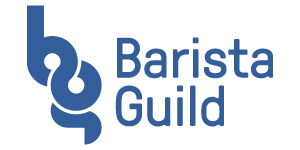The Art of Saying "I don't know"
 By Patrick Burns, Palace Coffee Company
By Patrick Burns, Palace Coffee Company
“I don’t know.”
Three words that I have a difficult time saying in my life as a barista. Let’s be honest. We’ve all been in the conversation. Yes, the coffee conversation where one person has an honest question and you being someone who has some coffee knowledge feel like you are obligated to know the answer. You use power of reasoning and deduce a position. That position might be routed in some solid science or it could have just been a regurgitation of Lingle, Schomer, or Hoffmann, or worse yet, that trainer that fed you a lot of B.S. because he never learned the art of saying “I don’t know.”
I have learned the most when I admit to myself and others that I am not the end-all be-all of coffee in my community. This is not to say that I don’t have strong opinions about coffee topics. Ask anyone who knows me, I can be downright belligerent when it comes to some good old fashion debate over the EK43 and what it does for espresso. In that though, I need to be careful how I present my thoughts. They are just that, my thoughts. I haven’t done any major research. I have not read reputable scientific papers about the subject. I am using my base understanding of coffee extraction method and putting that on my even more basic understanding of the argument.
This can be and is dangerous for our industry. Not dangerous as in mortal peril, mind you, but still dangerous nonetheless. Every day we have new people taking an interest in coffee. We have the ability to foster a culture of seeking and learning, but too often we squash that culture with self-assured rants and positions that turn into an echo chamber over time. Those new bright-eyed and bushy-tailed future coffee professionals now have a model that they see as something to be like; the all knowing, all tasting coffee badass. We want to foster a culture of discussion. The art of “I don’t know” creates an environment where conversations can, and should, happen. By acting like we know more than we really do we create an air of pretension and become lecturers to whoever will listen.
Now, not everyone that we come into contact is like this. There are many great, humble, knowledgeable, and engaging men and women who have made their careers serving and teaching about coffee. I deeply desire to emulate their abilities on a daily basis.
Here is where I want to grow as a coffee professional. If I can preface questions that I do not 100% proof positive know the answer to with “I don’t know fully” or “I’m not completely sure,” then that changes my position. It pulls me off of the pedestal that I like to carry around with me and puts me back into the conversation that will help me stay grounded, humble, and human. It should also drive me to want to learn, to dig into the good questions and have conversations and do more research until I come away with a more complete understanding.
Let's face it - we can't all be coffee gods.
